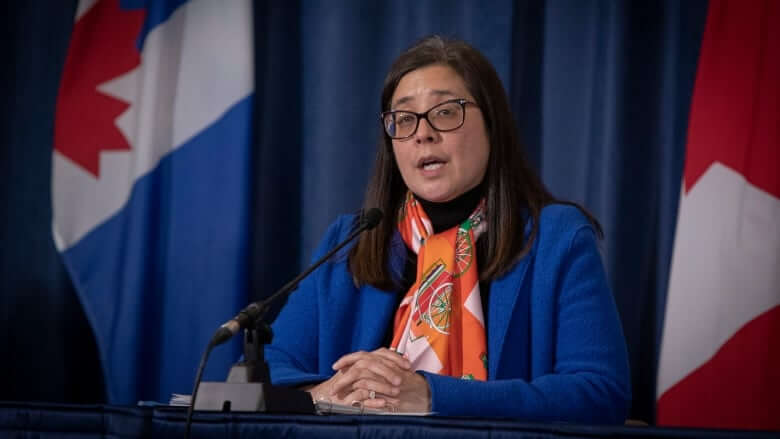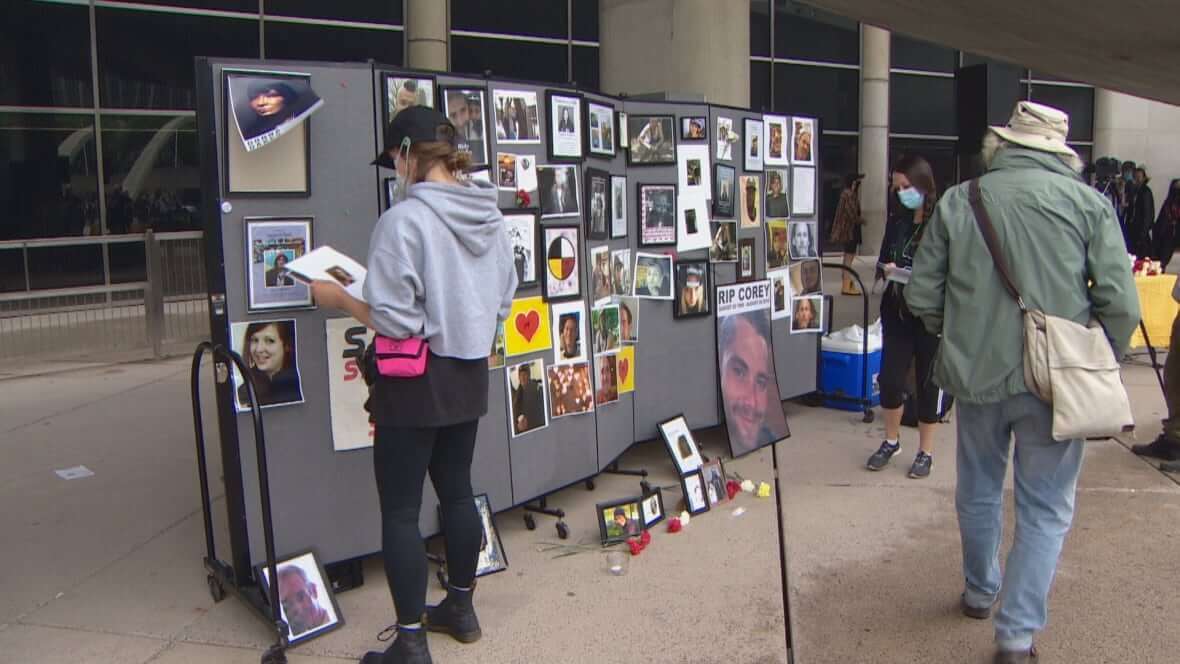Opioid overdose crisis has dramatically worsened during COVID-19 pandemic, report says

A new report from Toronto Public Health calls on the federal government to decriminalize drugs as a way to tackle a worsening opioid overdose crisis in Canada’s largest city.
Decriminalization of drugs ‘not a silver bullet’ for overdose crisis, prime minister says
Toronto’s Medical Officer of Health Dr. Eileen de Villa presented the report to the city’s Board of Health on Monday. It included a summary of the crisis and a list of recommendations for all three levels of government.
The board adopted the recommendations with two amendments (the full list can be read on the City of Toronto website).
Toronto saw 521 confirmed opioid overdose deaths in 2020, which was 78 per cent higher than in 2019 and 280 per cent higher than in 2015.
“This is an unprecedented increase,” said Nicole Greenspan, a manager at Toronto Public Health who presented the numbers to the Board of Health along with de Villa.
The number of fatal suspected opioid overdoses attended by paramedics also increased since the COVID-19 paramedic began in March 2020. Before the pandemic, paramedics attended an average of 13 calls a month, which doubled to 26 fatal calls per month in 2020, according to Greenspan.
The report also found that in January 2021, paramedics responded to 38 fatal calls, the highest number ever recovered in Toronto.
Recommendations for all levels of government
The recommendations adopted by the Board of Health include calls directed to the federal, provincial and municipal governments.
“There’s no question that a crisis at this scale and scope requires activity from all levels of government,” de Villa said at the meeting.
The report called on federal Minister of Health Patty Hajdu to use her authority to decriminalize the personal use of all drugs, declare a national public health emergency and develop a Canada-wide plan.
It also recommended a number of courses of action for the Ontario government, including scaling up prevention, harm reduction and treatment services and funding a Substance Use Crisis Centre to address the crisis.
For the city, de Villa called on the Board of Health to “recognize the drug poisoning crisis as a public health crisis in the City of Toronto” and recommended that she be tasked with creating a new working group to develop a “health- and social equity-based alternative approach to criminal sanctions” for personal use of drugs.
“We have done our very best to keep progress moving forward on this work given the significance of the drug poisoning crisis on the health of our city. Has it been enough? The short answer is no, and it will never be while there are preventable overdoses and while there are preventable deaths,” de Villa said
She added that it is a complex and multifaceted crisis like the COVID-19 pandemic.
“This crisis cannot be addressed by any one agency and their actions, or by any single level of government alone.”
Advocacy group boycotts meeting
The Toronto Overdose Prevention Society boycotted the meeting, saying people who previously made deputations at board meetings have died since because of a lack of action by the city.
Instead, they held a protest outside city hall in memory of people who have died from overdoses, which they said was due to “policy inaction and the racist, colonial and oppressive laws that directly led to this toxic drug supply.”
“This committee has made recommendation after recommendation without concrete action,” they said in a statement. “Enough of the recommendations and working groups: It’s time for the City of Toronto to act.”
Les Harper, an Indigenous health promoter at South Riverdale Health Centre, said they held a circle to honour and mourn people they’ve lost to the overdose crisis.
“We haven’t had that time to do that because of COVID,” he said.
He said he’s been asked to speak at several meetings like Monday’s at the Board of Health, but “that doesn’t go anywhere.”
“I’ve never been called back on anything I brought forward to see what could be done,” he said.
“People are dying, and it’s like, ‘Why wouldn’t you want to help these people?'”

Sarah Greig, the program manager at the Moss Park consumption and treatment service, said the event was held not only to show that the Board of Health has not done enough to combat the opioid overdose crisis, but also to come together as a community.
“I’ve deputed at the Board of Health before, and since my last deputation lots of people have died,” Greig said.
“I would like to see more cross-sectoral, coordinated, comprehensive harm reduction support and an overdose action plan. I’d like to see all city staff have overdose response training … I’d like to see all city staff know how to identify an opioid overdose and how to respond to it.”
She said she’d also like to see the federal government decriminalize drugs to better regulate supply chains and prevent fentanyl from entering the supply.
“Drug use is not a criminal behaviour, it’s a coping behaviour. We’re all doing the best that we can to hold on and to live day-to-day, and with all of this grief and trauma and first-hand exposure to violence of all sorts, it’s not the time for anyone to stop using drugs,” she said. “It’s time to decriminalize drugs for folks.”
“I’ve lost count of everyone who has died this way, and it’s 100 per cent preventable. We can do better.”








Redes Sociais - Comentários